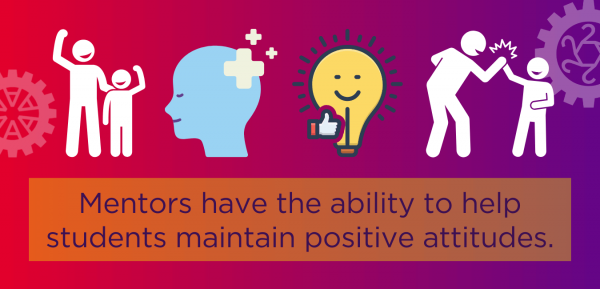Benefits of mentorship for students

Mentoring, at its core, provides students with guidance and direction throughout their learning journey. Mentors empower students to become autonomous and diligent learners. We know that children are impressionable and model the behaviour of the adults around them, which is why mentoring is beneficial to their academic journey. There are a breadth of benefits of having a mentor, primarily because they can provide educational support, encouragement, confidence, and feedback towards their learning and development. This blog explores 4 benefits of mentorship for students.
1. Increasing confidence
Confidence is a key driver of learning and development. As educators, we know how important it is to build confidence in young learners. Mentors provide great educational and personal support to their mentees, which helps to boost their confidence and self-esteem. Mentors tend to express understanding of students’ aspirations and challenges, by building a relationship with their mentees. Ultimately, mentors act as an advocate for their mentee’s, and can be particularly beneficial for children who are shy and reserved and those who lack confidence.

2. Individualised goal-setting
Goal-setting is an important factor for success and achievement. Mentors can help students to set and uncover individualised learning goals, whether they are short term or long term. They have the skills to help their mentees develop an action plan, instil the good habit of time management and organisation, and reflect on their progress. Setting goals helps students to visualise their aspirations and think through the steps required to achieve them, which is why this universal set of skills are crucial for success in the workplace and in life.

3. Developing positive attitudes
Children may not always demonstrate a positive attitude towards school, and this can make it difficult to support them with learning gaps or school-related issues. Mentors have the ability to build healthy relationships that have a positive and powerful impact on students. Mentors offer support, guidance, and encouragement to their mentees, by asking leading questions about school-related issues, making them feel comfortable, and sympathising with them. This can help alleviate any negative feelings or attitudes they may have towards school, as mentorship helps students maintain better and positive attitudes. Look out for signs where your child may be struggling at school.

4. Feedback
Feedback and advice is something that we should all acknowledge, in order to improve and develop. It is empowering and can influence future actions of students, as they can modify or make changes to further improve. Mentors are great at providing valuable and constructive feedback to their mentees, so that they are continuously improving, developing, and staying on track to achieving their goals. They may encourage their mentees to put more effort into a certain subject, or seek additional support, either at school or after-school tutoring.

Having a mentor outside of the home and classroom helps students to feel confident. Students can gain and develop life-long skills from their mentors, which supports their growth and development. If your child needs additional support with their learning, tutoring with NumberWorks’nWords could be a good fit. Our individualised maths and English tutoring programme targets young learners with learning gaps and those who are ahead and need extension work. To learn more, get in touch with your local centre, or book a free assessment today!



